An iPod, A Shuffle Setting & Memory Of A Christmas Past
Sunday, December 28, 2008
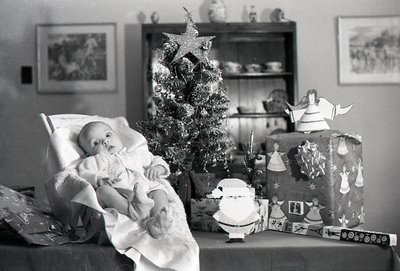
Last night as I was telling Rosemary of my efforts to locate my fellow classmates from St Edward's High School in Austin( 1957-1961) because of a first ever reunion in June she told me, "Alex you are living in the past."
There have been other reunions at St Ed's that have incorporated the high school (1925-1972) with St Edward's University which, unlike our Texas Landmark of a school, is still going strong. The significance of the June reunion is that it is only for the high school. My search for fellow classmates has taken me to an adobe brick factory in Alcade, New Mexico and to the story of a young 22-year-old man who was a car jockey at the LAX Airport. He had to park Tony Curtis's Maserati. While driving it he saw a fruitless future. He saw the light and quit his job. He went into law school and now teaches law in San Antonio. My search took me to the lore and history of the King Ranch (the largest ranch in the US) as I tried to figure out exactly who Michael East was in this scheme of things. This story involves a heiress who is befriended by a priest who convinces her to change her will so that the money would go to his order as opposed to the Diocese of Chorpus Christi and her heirs. A big lawsuit ensued and the presiding judge was the man whose son saw the light while driving the Maserati. Of Michael East I remember a young man with strange eyes (was one green and the other blue?) who wore jeans with spurs, a cowboy hat the first time I ever saw him. He was quiet-spoken, gentle and kept to himself. Why had he come to St Ed's?
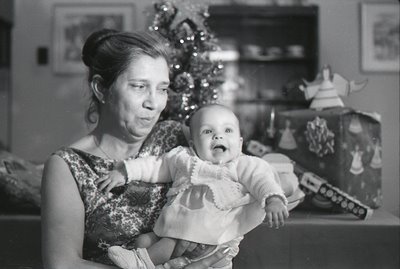
When Rosemary told me of my living in my past I was left speechless (for a moment). This interest of mine in my relationship with classmates from a boarding school whom I have not seen since 1961 has kept me occupied these last few days. I am about to finish Umberto Eco's novel The Mysterious Flame of Queen Loana which I am sure is partly an autobiography of Eco and particularly of his childhood under Mussolini.
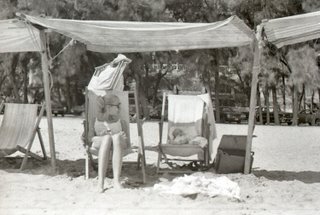
The explanation of the novel on the back cover is as follows:
Yambo, a sixtyish rare-book dealer in Milan has suffered a loss of memory - he can remember the plot of every book he has ever read, every line of poetry, but he no longer knows his own name, doesn't recognize his wife or his daughters, and remember nothing about his parents or his childhood. In an effort to retrieve his past, he searches through boxes of old newspapers, comics, records, photo albums, and adolescent diaries. And so Yambo relives the story of his generation: Mussolini, Catholic education and guilt, Josephine Baker, Flash Gordon, Fred Astaire. His memories run wild, and life races before him in a series of images, as Yambo stuggles to capture one- that of his first love.

My retort to Rosemary's troubling comment was one where I related my reading of Lawerence Durrell's Alexandria Quartet (Justine, Balthazar, Mountolive, Clea) and how these novels present four perspectives on a single set of events and characters in Alexandria, Egypt, before and during World War II. The Quartet are an exploration of relativity and the notions of continuum and subject-object relation, with modern love as the subject. The Quartet offers the same sequence of events to us through several points of view, allowing individual perspectives to change over time. I explained to Rosemary that examining the lives of all these boys now is like looking at my own life from a different point of view. I have written here of Julian Barnes's book nothing to be frightened of. In it he relates of his journeyd from atheism to agnosticism. In grade 11 my fellow classmate John M. Straney (now dead) began to loudly proclaim (in our Catholic boarding school) that he no longer believed in the existence of God. I remember arguing with him to no avail. I remember bringing him to the presence of Brother Edwin Reggio CSC who taught us religion and saying to Brother Edwin, "John says he no longer believes in God." Somehow Brother Edwin never took him to task and played a duck in the rain. I am sure other schools would have summoned the boy's parents and then expelled him. Nothing like this happened.
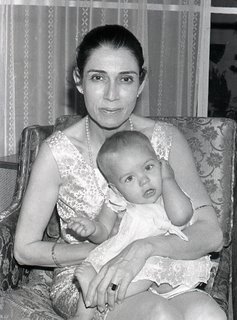
I am now able, especially in these wonderfully lazy days between Christmas and the Epiphany (January 6) to contemplate all these events of my past and reconcile them to my present. From there I can resolve how those past events will form or decide my future.
The photos in today's blog are from my past. But they are strange in some ways that remind me the shuffle tab of my Sony CD player. This shuffle device ushered in the random playing possibilities of my Rebecca's new Christmas iPod. The iPod and the demise of long playing albums and the eventual dissapearance of the CD are all about to destroy the order of first page first and last page last that Gutenberg's press brought to us in 1439.
The photos in today's blog are the product or a personal custom of my era in the 60s when I would keep a 36-exposure roll in my camera for months. I would then process it months later and cut the strips into frames of 6, not taking into consideration subject matter or seasons of the year. In two pages of negatives I have here a selection of our first 1968 Christmas in Veracruz with our four-month old daughter Alexandra Elizabeth and a last picture featuring the four of us with the newborn Hilary near our house in Arboledas in 1972. In between there are pictures of my mother with Ale and of my Aunt Dolly with Ale and even one of my mother's dog, a boxer called Antonio with the owner's son. Christmas in Veracruz were obviously hot as there is a picture here of Rosemary on Mocambo beach sitting with a tiny Ale under an awning.
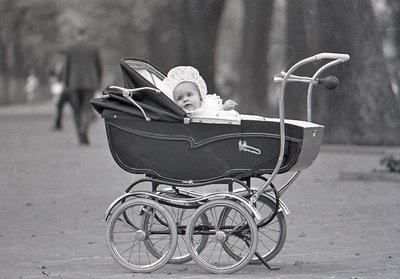
When Ale was born in August of 1968 we traveled to Veracruz a few weeks later in our VW bug to show of the kid to my mother. On the way I slipped off a curve (I was driving too fast) and turned over. We were saved by new-fangled seat belts that had come with the purchase of two new Firestone tires. Ale was saved because she was in a hooded wicker basket in the back seat. The hood saved her. Some farmers turned the car right side up and I slowly drove the lopsided vehicle to a worried mother who was anxiously waiting for us.
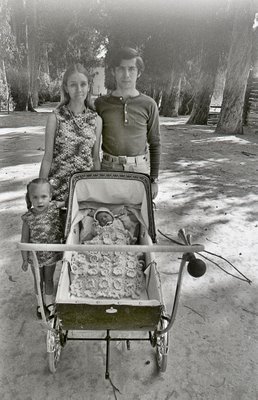
A few weeks later she visited us in Mexico City and told us we needed an English pram. She picked up the daily News a Mexico City paper in English) found a used pram. We went to see it and promptly bought it. We were delighted with the elegant dark blue lacquer finish on the wood body.
My old negative book has no obvious order. It is a 1968-1972 shuffle that in an unsettling way (I feel that unsettling now) predicted an era when one will no longer be able to say, "If you think this cut is nice wait until you hear the next one." How will that iPod affect Rebecca's memories in a near future? I look back and I can remember with a luxury of detail Dan Sherrod's album The Gibraltar Grand Prix in which Peter Ustinov was the voice of all the drivers (the German, the Frenchman, the Italian, the Aregentine and also all the special effects noises of the cars). I remember it all in the "correct" order.
I feel no different from Umberto Eco's Yambo who is looking into old boxes to make some sense from his past from a forgotten present.






